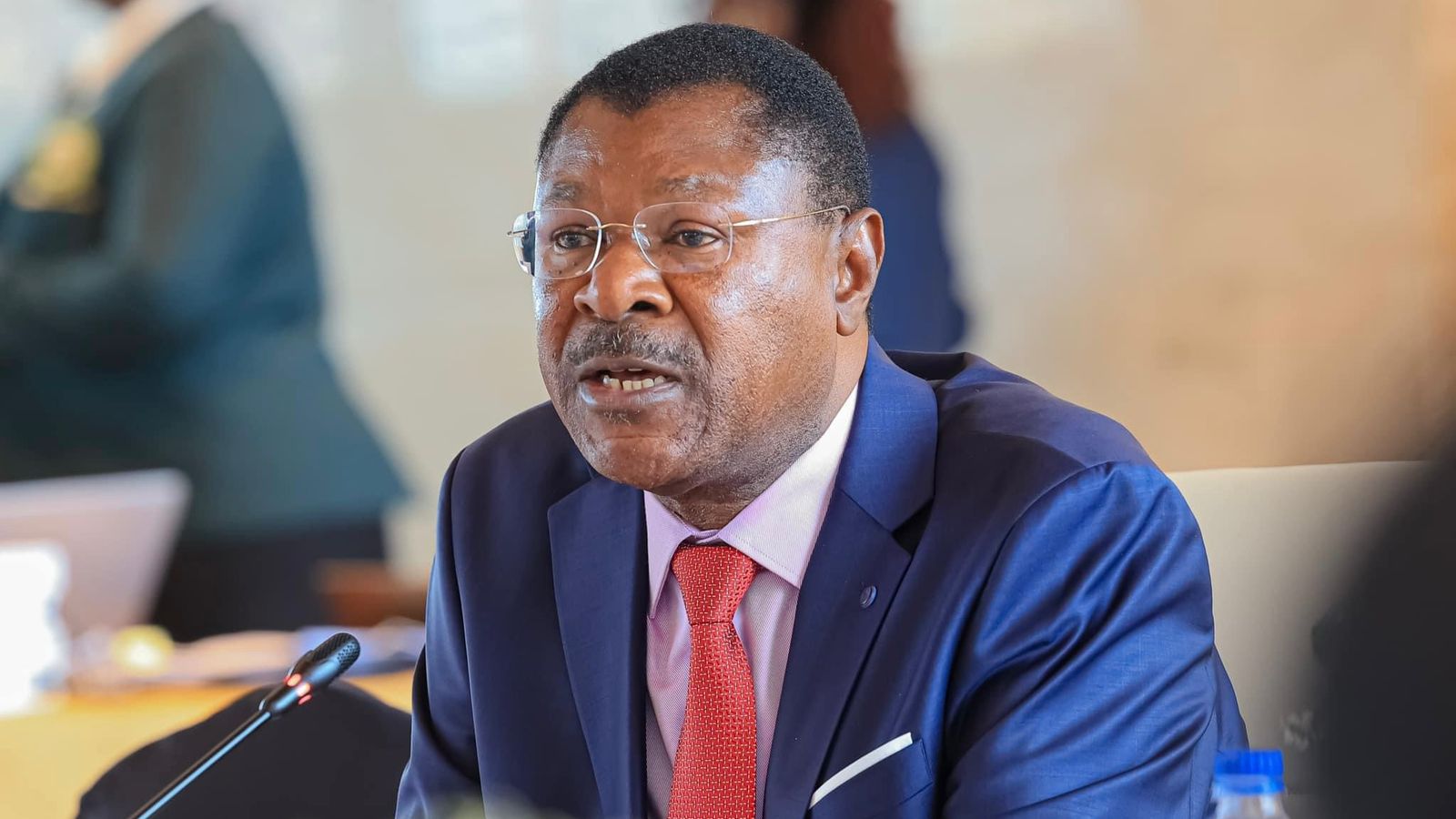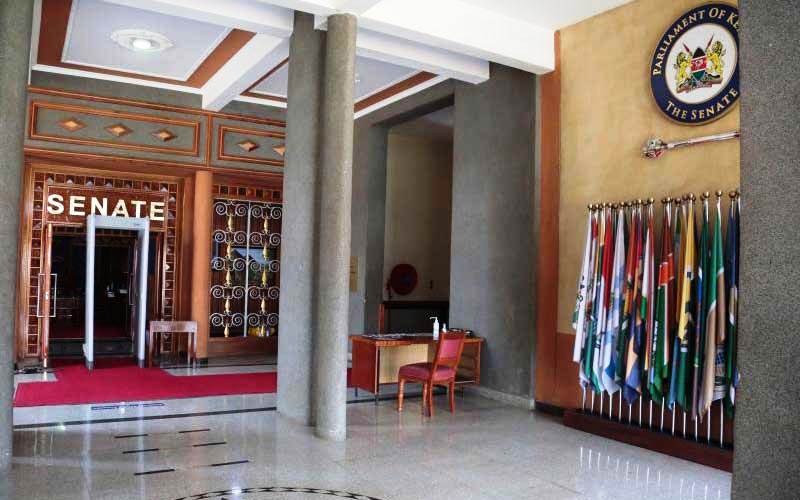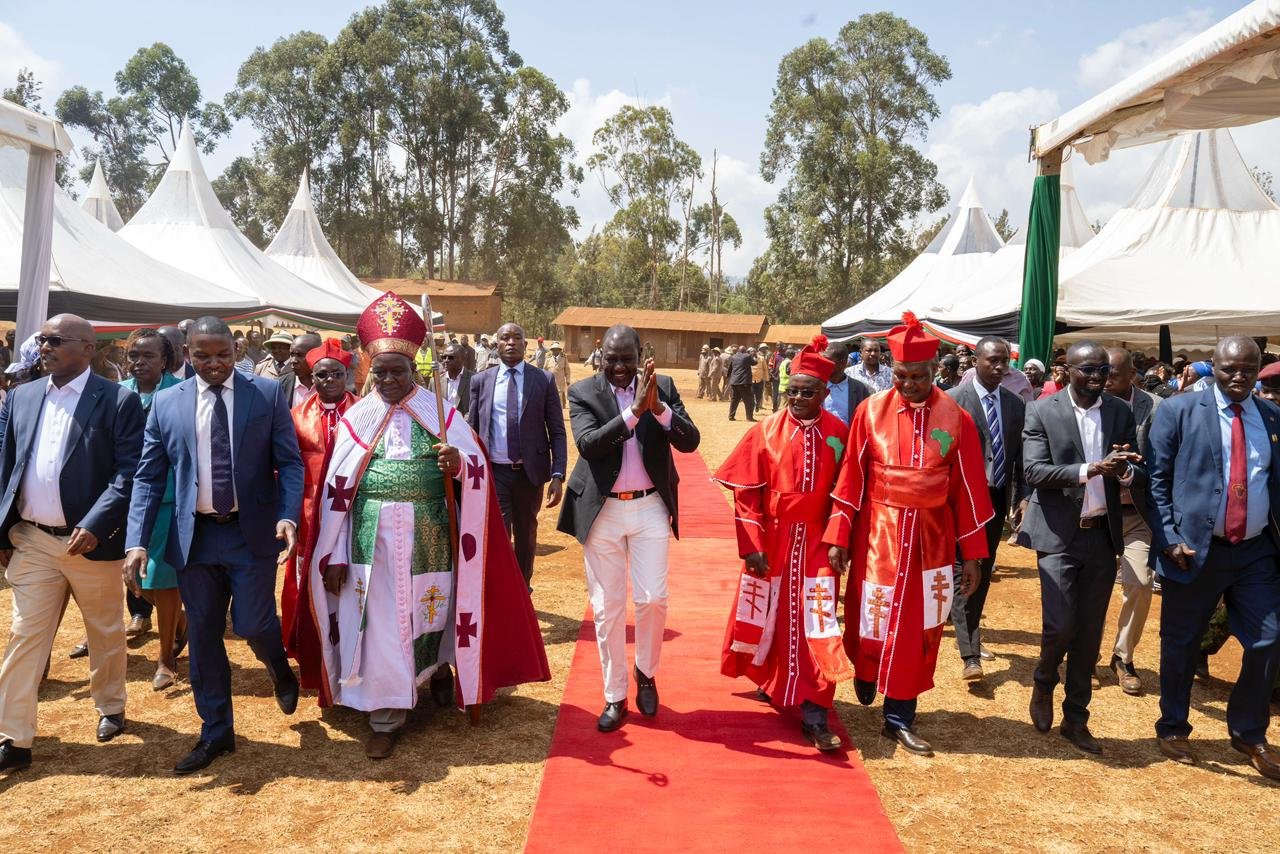National Assembly Speaker Moses Wetang’ula acknowledged that restoring public trust in the IEBC is a work in progress and urged the new commission to intensify public engagement to dispel fears and rebuild confidence. “The public has high expectations ahead of the upcoming by-elections. The pressure will be immense, but the chairperson and commissioners must remain steadfast,” he said
To unlock the full article:
Choose one of the options below:
- Ksh 10 – This article only
- Ksh 300 – Monthly subscription
- Ksh 2340 – Yearly subscription (10% off)
By Our Reporter
National Assembly Speaker Moses Wetang’ula has assured that Parliament will swiftly review and pass all election-related bills well ahead of the 2027 General Election to ensure the Independent Electoral and Boundaries Commission (IEBC) is fully prepared for the polls.
Speaking during a meeting with Ed Barnett, the Chargé d’Affaires ad interim at the British High Commission, on Wednesday, 22 October, Dr Wetang’ula said Parliament would not allow delays that could undermine electoral credibility. “Election-related amendments don’t originate from us, but as House leadership, we’ve resolved that within the next two to three months, we’ll be done with them. We cannot be reviewing laws six or seven months to a general election,” the Speaker said.
He acknowledged that restoring public trust in the IEBC remains a work in progress and urged the new commission to intensify public engagement to dispel fears and rebuild confidence. “The public has high expectations ahead of the upcoming by-elections. The pressure will be immense, but the chairperson and commissioners must remain firm,” he said.
With the constitutional boundary review now out of reach due to time and budgetary constraints, Wetang’ula challenged the IEBC to focus on registering millions of unlisted voters to boost participation in 2027. “By not voting, you lose the moral ground to make demands on elected leaders. Let’s respect the sanctity of building a nation and strengthen credibility in our institutions,” he said.
Barnett revealed that the UK, through its non-state partners, is already supporting the IEBC’s capacity-building efforts, including developing a robust strategic communication plan to enhance transparency, public trust, and the timely dissemination of electoral information. “We supported the induction of the new commissioners and will continue to channel our limited resources to strengthen their systems,” the envoy said.
On governance, the two agreed that the implementation of the newly enacted Conflict of Interest Act, 2025, would be a crucial test for anti-corruption agencies. Wetang’ula called on the Judiciary to fast-track corruption cases, saying justice delayed erodes accountability. “The Judiciary must reduce the time it takes to conclude cases. Timelines should be set and respected,” he emphasised.
Their talks also explored ways to transform the UK–Kenya relationship from one defined by aid to one grounded in trade and investment. Wetang’ula urged London to deepen private sector engagement and explore new frontiers such as mining, especially following the discovery of rare earth deposits in Kenya. “The UK has been a dependable partner since independence. We now want to build a stronger trade partnership anchored on mutual growth,” he said. Kenya is the UK’s second-largest export destination in Africa, accounting for 27 per cent of fresh produce and 56 per cent of the black tea sold in the British market.
However, Wetang’ula raised concern over the UK’s stringent visa regime, which has locked out many Kenyans, including students seeking to pursue higher education abroad. “There are many students who wish to study in the UK, but the visa process is too complex. We should leverage our Commonwealth connection to ease this,” he said.
Barnett acknowledged the challenge and promised to work with Kenyan institutions to help applicants better navigate the system. The British diplomat also conveyed his condolences to Kenyans following the death of former Prime Minister Raila Odinga, hailing the government for according him a dignified farewell.
Wetang’ula described Raila as a statesman whose legacy of resilience and forgiveness should inspire the nation. “Raila never carried grudges. After the fiercest political battles, he always put the country first,” he reflected. The visit came as the nation marked the final day of the official seven-day mourning period for the late Raila, a revered freedom fighter and Pan-Africanist.
[/full]




